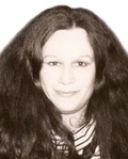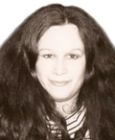
Career
In Their Own Words: Alexa Raisbeck
How a 27 year old woman with NLD became an artist who uses film as a medium.
Posted May 31, 2012
We who have nonverbal learning disorder (NLD) do so much more than the literature says we're capable of. Alexa is a 27 year old artist who uses film as the defining element in her art. She lives in the UK and uses "whilst" in conversation; every American Anglophile's favorite word.

'Visual Tension' an exploration into the visual process of creating art work with a visual processing deficit. (16mm & canvas)
Alexa sent a group of us this link. When I read it and saw the pictures I knew I had to highlight her work.
"I was diagnosed with NLD and dyscalculia last year in my mid - twenties and have since endeavored to learn about, understand and get to grips with my diagnoses. For the most part I have done this through my artwork, which according to most of the literature 'I shouldn't be able to do.'
I think people with NLD are wired to prefer clear cut definitions and established rules, however I think the literature is there to be challenged and the more I understand about NLD, the more I accept it cannot be pigeon—holed.

'The window' an exploration into memory and storage and its subsequent reformation. (35mm, loops, lights)
My NLD is a lifelong balancing act—I have great weaknesses but also great strengths and it is about using the strengths to even out the weaknesses. I have to respect that even though I have great strengths, if I play to them for too long my weaknesses will become more of a problem - so I feel the best philosophy is finding a middle ground.
Finding out I had NLD was a very large inspiration for me, the more I studied the literature the more questions were posed to me and I guess I tried to solve those questions with my art.
The introspection undertaken for my artwork played a large part but I was also struggling academically on my Masters degree. I started with dyscalculia/ dyspraxia and then came across NLD and had the 'aha' moment so many people talk about.
How do I think? How do I learn? How do I remember? How do I experience this? So much of the literature states that people with NLD can't be good at art and I felt that was wrong and wanted to challenge that... Also I love working with film!

'Untitled' an exploration of Picture and how 'images' are formed in the mind of someone with NLD. (35mm frames & light box)
I am also a technician and work with mechanics (something else I am not supposed to be able to do) and enjoy problem solving. I still have problems with time, numbers, writing, motor, spatial and social skills but I have learned strategies to help me work around the difficulties I face.
My split between hemispheres on the WAIS is considered 'significant' but I try not to let it stand in the way academically and can proudly say that I have two degree's, a BA and a Masters. Plus with the learning strategies I have developed (for myself) I am currently teaching myself Hindi - something that would have been impossible for me to grasp a few years ago.
Yes I learned a lot, like although I have trouble with space and numbers I can line things up pretty well with just looking with my eyes. I learned that I have very strong auditory thinking but I could still work visually... The most important for me was finding my 'area' - art has always been what I was good at but when I got to a certain level in traditional painting and drawing I was unable to go any further.
My teachers used to get frustrated with me as they knew I was artistic but couldn't meet their expectations. I then abandoned art because 'I was not good enough.' Now I understand that the NLD posed limitations in my hand eye coordination, visual processing and motor control. The current work is proof to myself that I can work around these things."

'Number (non) sense' an exploration into dyscalculia and number comprehension. (16mm, adapted lens, projector,screen)
Alexa works as a film technician/projectionist. Though most films are digital she does get to work with film occasionally. I'm in awe as I had to wait for digital cameras before I even attempted amateur photography.
Like many adults she learned about NLD on her own, and had that "aha" moment we all hear about but never experienced ourselves.
With an NLD diagnosis can come great freedom. I chose Alexa to begin this occasional series as her diagnosis led to a period of self-reflection and growth. Something I think most of us who were diagnosed as adults aspire to. I'm amazed by and respect her determination.
I also love her art. And can't believe she's learning Hindi! I have spent much of my life trying to learn Spanish to often comical results.

